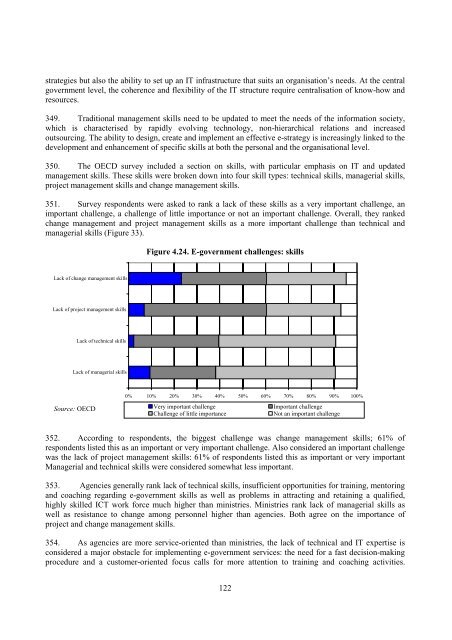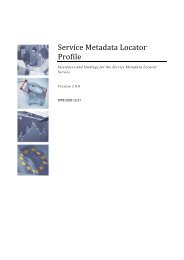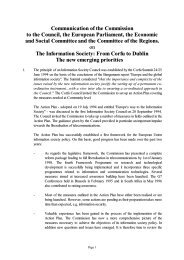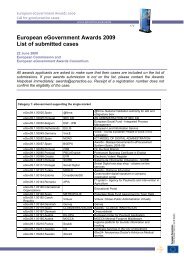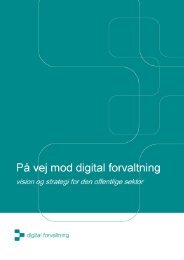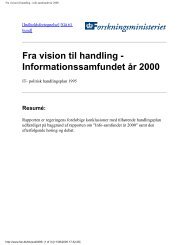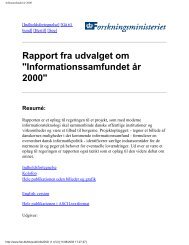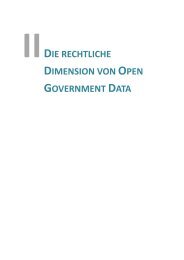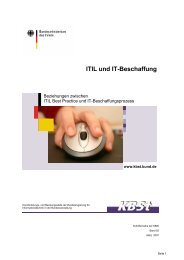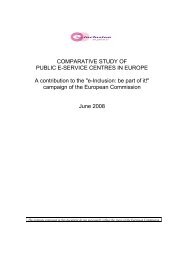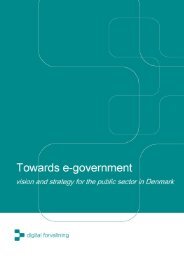e-GOVERNMENT IN FINLAND - ePractice.eu
e-GOVERNMENT IN FINLAND - ePractice.eu
e-GOVERNMENT IN FINLAND - ePractice.eu
Create successful ePaper yourself
Turn your PDF publications into a flip-book with our unique Google optimized e-Paper software.
strategies but also the ability to set up an IT infrastructure that suits an organisation’s needs. At the central<br />
government level, the coherence and flexibility of the IT structure require centralisation of know-how and<br />
resources.<br />
349. Traditional management skills need to be updated to meet the needs of the information society,<br />
which is characterised by rapidly evolving technology, non-hierarchical relations and increased<br />
outsourcing. The ability to design, create and implement an effective e-strategy is increasingly linked to the<br />
development and enhancement of specific skills at both the personal and the organisational level.<br />
350. The OECD survey included a section on skills, with particular emphasis on IT and updated<br />
management skills. These skills were broken down into four skill types: technical skills, managerial skills,<br />
project management skills and change management skills.<br />
351. Survey respondents were asked to rank a lack of these skills as a very important challenge, an<br />
important challenge, a challenge of little importance or not an important challenge. Overall, they ranked<br />
change management and project management skills as a more important challenge than technical and<br />
managerial skills (Figure 33).<br />
Lack of change management skills<br />
Lack of project management skills<br />
Lack of managerial skills<br />
Source: OECD<br />
Lack of technical skills<br />
Figure 4.24. E-government challenges: skills<br />
0% 10% 20% 30% 40% 50% 60% 70% 80% 90% 100%<br />
Very important challenge Important challenge<br />
Challenge of little importance Not an important challenge<br />
352. According to respondents, the biggest challenge was change management skills; 61% of<br />
respondents listed this as an important or very important challenge. Also considered an important challenge<br />
was the lack of project management skills: 61% of respondents listed this as important or very important<br />
Managerial and technical skills were considered somewhat less important.<br />
353. Agencies generally rank lack of technical skills, insufficient opportunities for training, mentoring<br />
and coaching regarding e-government skills as well as problems in attracting and retaining a qualified,<br />
highly skilled ICT work force much higher than ministries. Ministries rank lack of managerial skills as<br />
well as resistance to change among personnel higher than agencies. Both agree on the importance of<br />
project and change management skills.<br />
354. As agencies are more service-oriented than ministries, the lack of technical and IT expertise is<br />
considered a major obstacle for implementing e-government services: the need for a fast decision-making<br />
procedure and a customer-oriented focus calls for more attention to training and coaching activities.<br />
122


